Freight trucks are the backbone of the logistics and transportation industry and are responsible for shipping goods to great distances. Nearly all businesses rely on freight trucks to transport their goods. In fact, trucks transport significantly more payload than airplanes, trains, or ships. 72.6% of total domestic goods were shipped, which is 11.46 billion tons worth of goods carried in the US, and were transported by trucks (source: American Trucking Association).
Different types of cargo require different transportation methods to move goods around the country and the world. Some of the many types of trucks are – semi-trailers, flatbeds, step decks, reefers, dry vans, box trucks, tankers, and more.
This blog post will discuss the US’s most popular freight truck transport and its uses. Keep reading to learn more about these trucks.
9 Most Common Types of Trucks Freight
Even though sometimes overlooked, trucks play a critical role in the dispatch industry, handling up to 70% of all freight in the US. As per statistics reported by the American Trucking Association in 2022, the trucking industry—generated $940.8 Billion in gross freight revenues, which is 80.7% of nation’s total freight bill.
This shows that the number of trucks involved in this operation were in huge numbers, but to carry out different freight operation, different types of trucks are involved. Thus, various types of trucks with different features and capabilities are used to manage transportation on a massive scale. Here are some of the most common trucks used in the dispatch industry:
1. Dry Van
Dry van trucks are the most common and versatile truck type used for freight transportation. These enclosed trailers protect from weather elements and are commonly used for hauling non-perishable goods such as consumer goods, electronics, and industrial supplies. Dry vans offer secure and safe transportation, making them a preferred choice for many businesses.
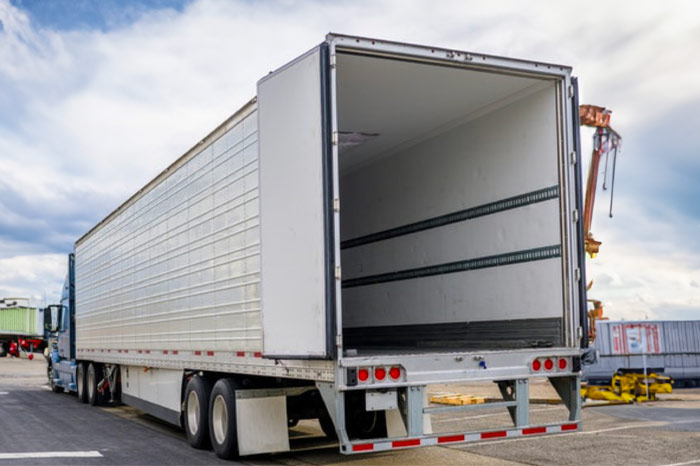
2. Hot Shot
Hot shot trucks are smaller trucks (30-40 feet long) used for expedited delivery of time-sensitive and smaller loads. They are often equipped with a gooseneck trailer or a flatbed trailer. Hot shot trucking is ideal for quick shipments, emergency deliveries, and transporting smaller equipment or parts. This truck type is highly efficient in meeting urgent delivery needs.
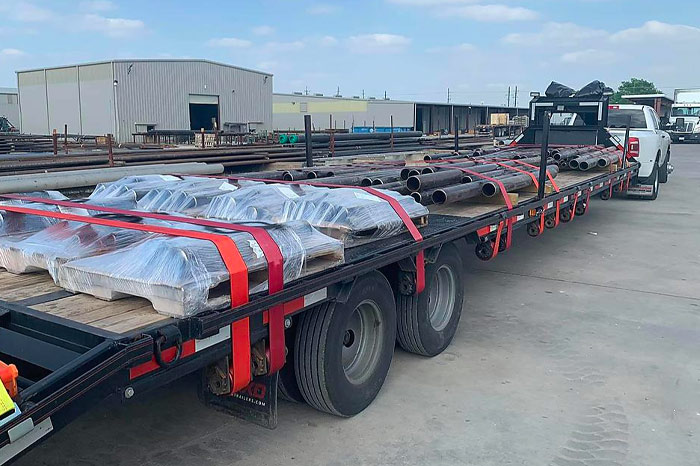
3. Reefer
Reefer trucks, also known as refrigerated trucks, are designed with integrated refrigeration units to transport perishable goods requiring specific temperature control. These trucks are essential for transporting fresh produce, frozen food, pharmaceuticals, and other temperature-sensitive items. Reefer trucks ensure the integrity and quality of perishable goods throughout their journey.
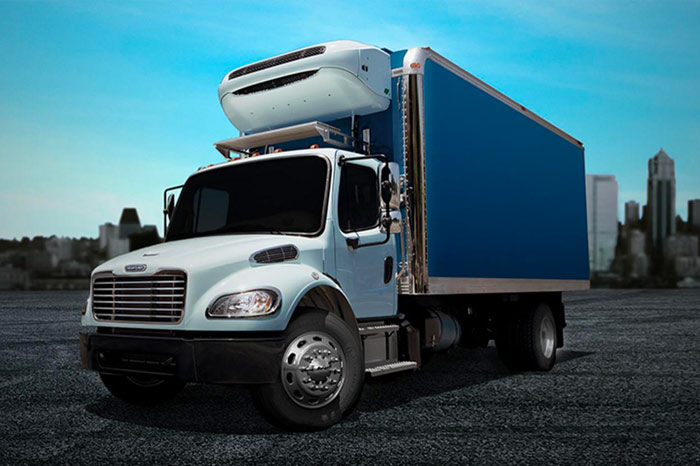
4. Semi-Trailer
Semi-trailers also referred to as tractor-trailers or 18-wheelers, are the backbone of the trucking industry. They consist of a combination of a tractor unit and a detachable trailer. Semi-trailers provide significant cargo-carrying capacity and are commonly used for long-haul transportation of goods across different industries, including automotive, construction, and retail.
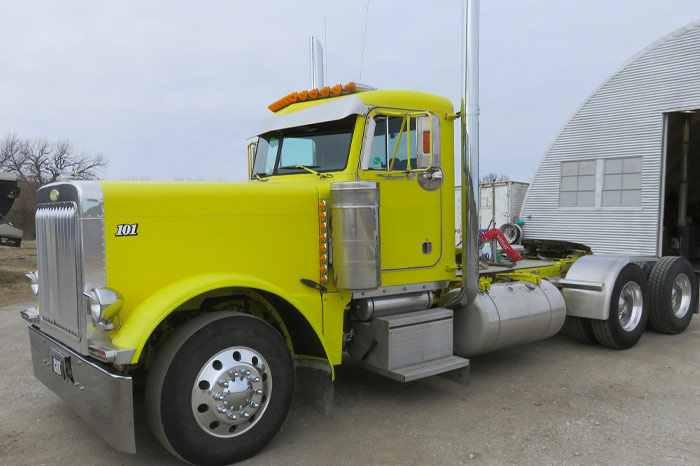
5. Flatbed Trucks
Flatbed trucks are characterized by an open-air trailer without sides or a roof. These trucks (typiclly 48 or 53 feet long) designed to transport oversized or irregularly shaped cargo, such as construction materials, machinery, and large equipment. Flatbed trucks offer easy loading and unloading of cargo from any side, making them versatile for various industries.

6. Step Deck
Step deck trucks, or drop deck trailers, are similar to flatbed trucks but feature two deck levels – a top and a lower deck. The lower deck provides more vertical space, making it suitable for oversized cargo that exceeds height restrictions on standard flatbeds. Step deck trucks are commonly used for transporting heavy machinery, tall equipment, and vehicles.
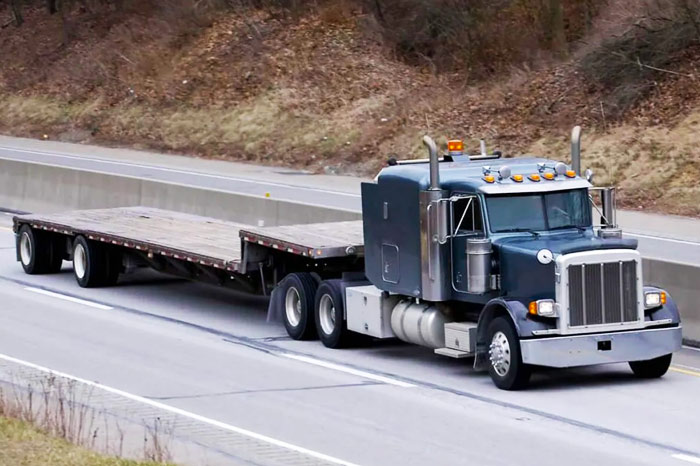
7. Box Truck
Box trucks, also known as cube vans or straight trucks, have a box-shaped cargo area attached to a chassis, offering enclosed transportation. These trucks are commonly used for local and regional deliveries, furniture transportation, and moving services. Box trucks provide security and protection for goods against theft, weather conditions, and damage.
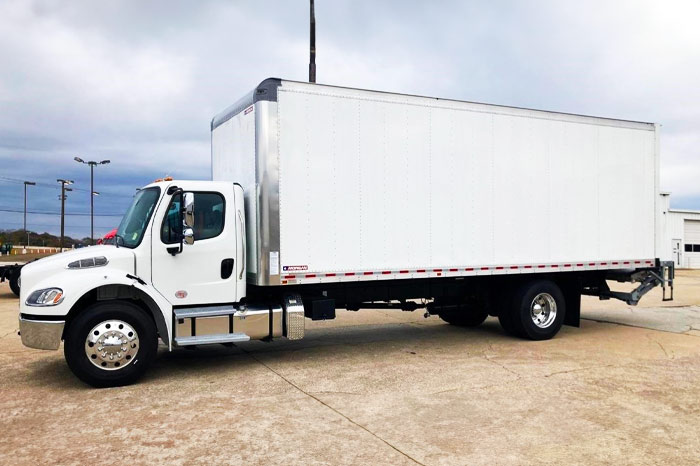
8. Tanker
Tanker trucks are specialized vehicles designed to transport liquid or gas cargo in large quantities. These trucks feature cylindrical tanks commonly used for hauling fuels, chemicals, water, and food-grade liquids. Tankers are designed with safety measures to ensure proper containment and transportation of hazardous materials.
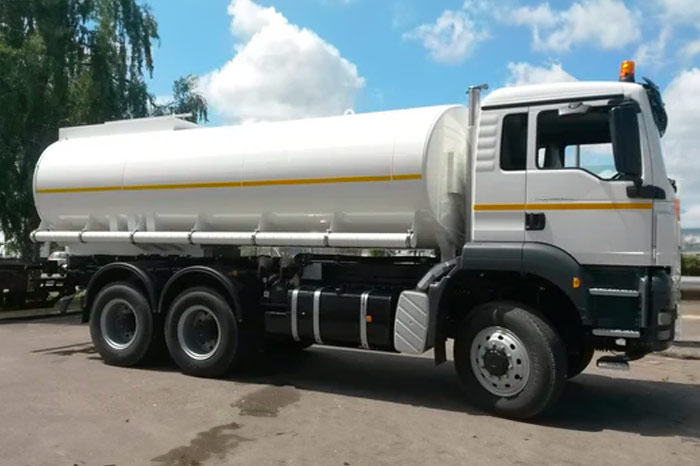
9. Low Boy
Low-boy trailers, also known as low-bed or low-loader trailers, are designed to transport oversized and heavyweight cargo, such as construction equipment, bulldozers, and cranes. These trailers have a low deck height, allowing the transportation of tall and heavy machinery. Low-boy trailers provide safety and stability for hauling large and heavy loads.
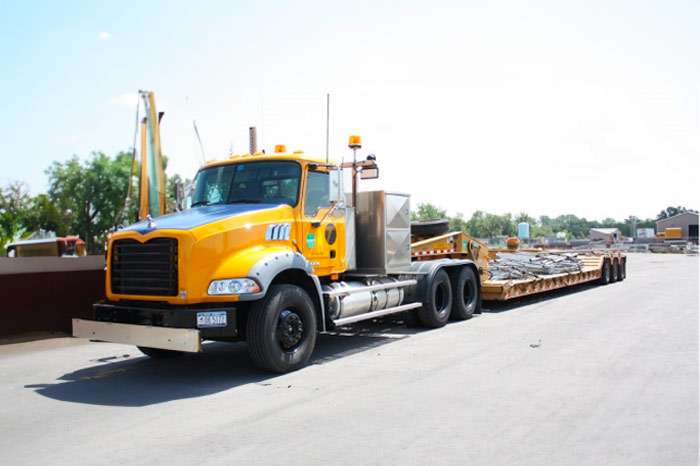
The Bottom Line
All the trucks that we discussed earlier serve a specific purpose that meets the requirements of different freight businesses. By understanding the features and benefits of each type, you can decide which truck is perfect to expand your freight and maximize your operations.
Dispatch Circle can handle all these operations for you efficiently. If you are an owner operator or have a large freight of different truck types, Dispatch Circle can help you get high-paying loads.
With comprehensive features for managing dispatching like load planning, billing, finding the highest-paying loads, and more, we can empower businesses like yours drive more growth in your trucking operations. Interested in partnering with us? CONTACT US NOW!!!
Originally Published at https://dispatchcircle.com/types-of-trucks-freight/

Comments
Post a Comment